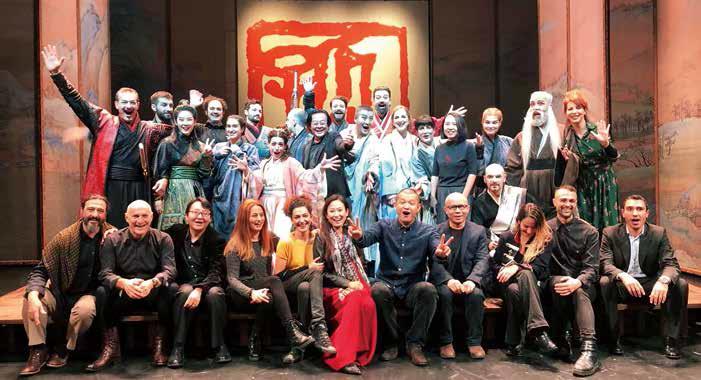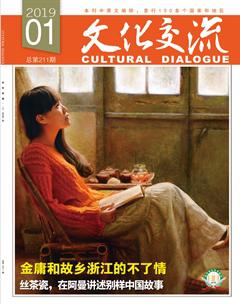Chinese Tragedy Performed in Greece
Ma Li
On November 18, 2018, , a Chinese tragedy written in the 13th century, was performed at National Theater of Greece in Athens. The performance created a few firsts. “No Chinese director and playwright had ever directed and rehearsed a Chinese tragedy at a national theater in an international partnership,” remarked Yu Qingfeng, the playwright who adapted the play for the international performance. He is a native of Hangzhou and winner of Cao Yu Prize in Script three times. What made the performance special was, among other things, Chinese and Greek actors appeared in the play, with the Chinese actors speaking Chinese and the Greek actors speaking Greek.
The year 2016 saw the genesis of the Greek performance after Chinese director Wang Xiaoying successfully directed , a 1948 play by the German modernist playwright Bertolt Brecht, for Black Swan State Theater Company in Australia. Through the Greek Embassy in Beijing, Wang Xiaoying contacted the National Theater of Greece. After rounds of talk, it was decided that two Chinese actors and one Greek actor were to appear as three protagonists in the six-part to be staged at the theater.
was the first Chinese play translated into European languages in the 18th century. The performance directed by Wang Xiaoying retained key elements of traditional Chinese theater and introduced the Greek chorus into the performance. The chorus described and commented on the main action of the play; it sang and , two songs characterized by Greek musical characteristics.

主創首演后合影The production team and actors pose for a photo after the success of the performance.
More than 1,000 people watched The Orphan of Zhao on November 18. Ms. Lydia Koniordou, who had just stepped down as Minister of Culture and Sports a month before, warmly congratulated Chinese crew for the successful partnership. “The performance was brilliant. It not only displayed artistic features of traditional Chinese theater but also exhibited a strong sense of modernity and internationalization. The show was the result of cooperation and exchanges between China and Greece, each with a long history of theater,” said the woman who used to be a famous tragedy actor with the National Theater of Greece.
The success yielded from hard work and insight into cultural exchanges.
Before the rehearsal started, Wang Xiaoying discussed the play with Greek actors for a week, introducing traditional Chinese ideology and culture, with a focus on Chinese concepts such as justice, honor, forbearance and aloneness. Wang discovered that the Greek actors, though enthusiastic and eager, had limited knowledge of traditional Chinese culture and theater. In the rehearsals, they found the artistic concepts and practices of their Chinese colleagues quite amazing and admirable. Some of the actors learned some Chinese words. “I do think that through such a way of communicating, Chinese culture will leave long-term impact overseas,” commented the director.
Playwright Yu Qingfeng designed a new ending for the stage adaptation in Greece. He wrote the original adaptation 14 years ago for Yueju Opera. In the latest international version, Cheng Ying gives up seeking revenge after all these years but the orphan of Zhao he brought up goes all out and avenges his family, presenting a tragic theme: human goodness can hardly do anything about the cruelty of life. Yu thinks the new finale made a perfect fusion of Chinese culture and Greek culture despite differences of languages and cultures.
At the end of the last dress rehearsal, the director went out of his way to ask the audience about possible language difficulties. Some were not aware that some dialogues took place in two languages. Most of them experienced no difficulty appreciating the drama. Some remarked that they soon forgot the language issue and allowed themselves to get carried away by the drama.
“The success of the performance convincingly indicates that we should never underestimate peoples ability to appreciate art. If we present necessity and rationale in telling the story and provide the best artistic presentation, we have no reason to worry whether they will accept our presentation,” said the director.
“This is the most thrilling evening of my career!”enthused playwright Yu Qingfeng on social media after the resounding success of the show in Athens. In his opinion, the performance was a most ceremonious expression of the friendship between China and Greece, two ancient civilizations; the fusion of Chinese tragedy and Greek tragedy transcended the differences in language and culture. His cooperation with the director Wang Xiaoying was a successful case of internationalization of a China story.

